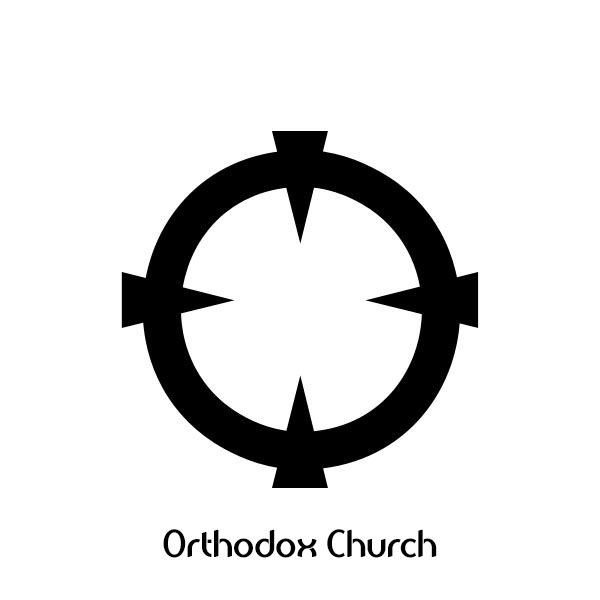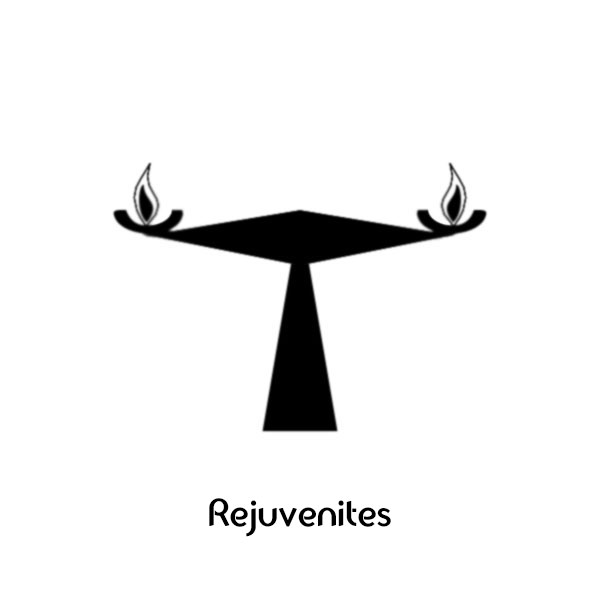
GOVERNMENT
The government which was formed under the counsels of Sartra, Duke Daneel, and General Baghera was, naturally, of a constitutional nature; expounding the freedoms of its citizens and laying out a concrete system of governance. Based upon the classical three-tiered system of democratic government dating back to before the founding of the First Republic, the great nationalistic pride which most of the Concordat communities have felt towards this edifice of power has had a general homogenizing effect on many regional and local governments as well. Although there are exceptions the vast majority of Concordatian governments function along this same basic model.
Essentially government in the Concordat is split as a republic into four different levels: the Galactic, the Planetary, the Regional, and the Local. The former, as the name implies, is the government founded under the guidance of Sartra; it rules over the whole of the Concordat. The second, the next step down from the Galactic, takes a variety of specific forms, but adopts the common name of Planetary because it is generally composed of planet-wide governments. Most planetary governments oversee a group of Regional governments, which deal largely in bureaucratic initiatives focusing on specific sections of individual worlds. Finally, Local governments usually take the form of county boards or city councils, dealing with the nitty-gritty details at the most immediate level to the average citizen.
The galactic government, as noted, is a federal constitutional system with a legislative, an executive, and a judicial branch. The executive is composed primarily of the President, who serves a five year term, and his immediate advisors and bureaucratic chiefs. The legislative is formed around a bicameral Congress composed of two houses – the Assembly and the Senate. The Assembly draws its membership proportionally from each planet, serving three year terms. The Senate is composed of three members from each planet, one of which is elected every two years to serve a six year term.
The Judicial system established by Sartra is the most unique element of the Concordat system of government. At its highest level it is composed of a Supreme Court formed of ten Justices. All of these Justices are popularly elected at the Galactic level. Five positions are possessed of a lifetime term; five of a ten year term. At the lower levels cases are heard by a Judicial Panel consisting of six Judges and six Jurors. The Judges are elected officials; the Jurors are randomly selected citizens who serve on a single panel. Unlike previous jury systems, Sartra’s did not have a lengthy juror selection system designed to minimize prejudice within the jury system – instead he saw that the judicial system could be sped up considerably be simply slotting in the first six randomly determined jurors, and then using the six judges to counterbalance any missteps on the parts of the jurors. The judges would counteract the vagaries and prejudices of the jurors, while the jurors would counteract the tendency to corruption or tyranny which might breed within the judges.
Finally a Bill of Rights rounds out the constitutional system, protecting the citizens of the Concordat from infringement by the government on many “basic rights”.
Most Concordat citizens are, rightfully or not, extremely proud of the freedoms and democracy which their government represents. The Galactic Constitution and the principles on which it is founded are regarded as unquestioned virtues.
RELIGION
In the nine centuries since the end of the Second Dark Age the Orthodox Church and religion in general have weakened within the borders of the Concordat. When the Church Elders, based on Mecca, were finally forced by grassroots efforts to recognize and join the Concordat government they lost a great deal of political power. The Constitution as defined under Sartra not only encouraged, but enforced and exemplified a strict restriction on the intermingling of church and state. He respected primarily the freedom of the individual, and knew that the structure of the Orthodox Church would lead to an oppression of minority interests and beliefs if they were allowed access to pure political power.
Without the political power to puritanically enforce their religious views, the Orthodox Church found its constituency base begin to splinter apart. Although true alternatives to the Omega Gospels and the worship of the Pancreator do not really exist, the way in which the Pancreator is worshipped and the Omega Doctrines interpreted have begun to diversify. As the Church has found itself broken apart by differing interpretations and modes of belief, religious fervor in general has suffered: It is easier to believe in unprovable religious truths if the religious community is unified; if it is fragmented it is easier to simply dismiss them as whole.
ORTHODOX CHURCH: The Orthodox Church is still the primary religious institution in the Concordat, with fully 25% of the population under its auspices in one capacity or another. With that  being said, however, it is necessary to admit that the church is little more than a shadow of its former self. Although the official doctrine still supports the belief that the Patriarch of Mecca is the spiritual leader of the Church, the average churchgoer is far more relaxed in his beliefs – accepting official Church doctrine only when it suits them.
being said, however, it is necessary to admit that the church is little more than a shadow of its former self. Although the official doctrine still supports the belief that the Patriarch of Mecca is the spiritual leader of the Church, the average churchgoer is far more relaxed in his beliefs – accepting official Church doctrine only when it suits them.
As noted the Orthodox Church structure is still based primarily on Mecca, a planet which assumed religious prominence due to the abundance of Ur gargoyles and ruins on its surface. When the Concordat sealed itself off from the rest of the galaxy the church leaders on Mecca seized political control of the planet and asserted their leadership on the church structures of the Ten Worlds.
LIBERALISM: About two decades after Mecca finally capitulated and joined the Concordat the unified facade of the Church began to crumble under the religious teachings of Uther Fairchild. Fairchild preached that belief in the perfection of the Patriarch was a fallacy. Instead of looking to the Church for leadership the faithful should instead look to it only  for guidance – the truth of the Pancreator was not to be found in edicts, but through the exploration of a personal truth reached through personal interpretation. Each individual should strive to interpret the Omega Gospels in their own way and to find the truths within it which are meaningful to their own lives. The structure of the Church, Fairchild said, was only useful in so far as it served to educate and to guide the faithful through their own spiritual journey.
for guidance – the truth of the Pancreator was not to be found in edicts, but through the exploration of a personal truth reached through personal interpretation. Each individual should strive to interpret the Omega Gospels in their own way and to find the truths within it which are meaningful to their own lives. The structure of the Church, Fairchild said, was only useful in so far as it served to educate and to guide the faithful through their own spiritual journey.
Such convictions quickly found fertile soil in the fresh nationalism which was spreading through the freshly formed Concordat. The Church, stripped of its power to politically silence Fairchild, could do nothing more than excommunicate the rebellious teacher. It has long been argued whether or not this was an even greater mistake by the Church – the highly public excommunication of Fairchild, and Fairchild’s own embracing of this new reality, served not as a warning, but as a clarion call that the Church’s ability to tyrannically enforce its view of faith was broken by the realities of the new system of government.
Today nearly 15% of Concordat citizens are members of the Liberalist church – making it the strongest competitor with the Orthodox for the faith of the people. It also remains at bitter doctrinal and political odds with what it perceives to be the archaic, restrictive, and false tyranny of the Orthodox religious teachings.
THE SAINTED ORDERS: The Sainted Orders date back to an amalgamation of different religious sects in the 46th century. The basic structure of the belief differs depending upon which Order  one is analyzing, but the central tenet is that the Prophet was actually the living incarnation of the Pancreator, with all or some of his eight followers sainted and/or deified as well.
one is analyzing, but the central tenet is that the Prophet was actually the living incarnation of the Pancreator, with all or some of his eight followers sainted and/or deified as well.
Although initially a great populist success the Sainted Orders have faced a general decline for several centuries. During the past hundred years or so this trend has been accelerated because the Orders have tended to be a haven of religious extremists. The loose collection of slightly differing religious beliefs within the Orders makes it easy for radical cults to spring up and mass suicides, murders, and religo-terrorist actions have become semi-regular events.
REJUVENITES: At one point during the early scientific renaissance of the Human Concordat a popular theory held that the dimming of the suns was simply part of a long galactic cycle which would, eventually, reverse itself. In short, there was nothing to be particularly worried about – the problem would take care of itself. Although  this theory has since been discredited and now is largely ignored, the idea seemed to find ideal fermentation within the religious community. The Rejuvenite faith maintains the Orthodox position that the suns are fading because of the sins of mankind, but they differ in one important respect: There is no hope of rekindling them. They are a sign of the end of an age, at which point the Pancreator will “clothe himself within the confines of the flesh” and “walk among the people of the Galaxy” to “pass judgment upon the deeds of his servants, faithful and unfaithful”.
this theory has since been discredited and now is largely ignored, the idea seemed to find ideal fermentation within the religious community. The Rejuvenite faith maintains the Orthodox position that the suns are fading because of the sins of mankind, but they differ in one important respect: There is no hope of rekindling them. They are a sign of the end of an age, at which point the Pancreator will “clothe himself within the confines of the flesh” and “walk among the people of the Galaxy” to “pass judgment upon the deeds of his servants, faithful and unfaithful”.
If the Pancreator finds mankind worthy he will “rekindle the stars with the light of his love” and a golden age will ensue. If not, then he will destroy mankind and start anew. The Rejuvenites hold that just such an event occurred eons ago when the Ur races ruled the universe, and that the Ur races were found unworthy.
Some fringe Rejuvenites believe that each race will be judged in turn, and particular focus has been spent upon the Vau. Some believe that the Vau have found the true secrets to acceptance in the eyes of the Pancreator and that their ways should be emulated. Others imagine some sort of interspecies contest in which only one will be chosen to proceed into the golden age – they would have the Concordat attack and destroy the Vau.
URITIC ORDER: The Uritic Order was initially an order of monks organized around the teachings of Petref Alanna in the 47th century. Its spiritual roots lie with both the Rejuvenites and the Sainted Orders. Alanna accepted the belief that the fading suns were an indication of the end times, which would culminate in a judgment of mankind which would determine whether mankind  would be sent into a golden age.
would be sent into a golden age.
Instead of believing that the alternatives were either a golden age here in this plane of existence or utter destruction, Alanna believed that in the judgment the Pancreator would send those he chose as worthy into another plane of existence – a Nirvana or a Heaven. Those who were not chosen would remain behind. He said that the Ur races had not failed the test, they had passed it and been sent on into this other plane – leaving the imperfect Ur-Ukar and Ur-Obun, who had failed the Pancreator’s test, behind.
Finally Alanna said, along with the Sainted Orders, that the Prophet was not a mortal man. However, he did not embrace the conclusion that the Prophet was an incarnation of the Pancreator, either. Instead, he said, the Prophet was a reincarnation of the collective wisdom of the Elder Races and focused particular attention upon the role of the Ur-Obun Follower, Ven Lohji.
Since Alanna’s death the ideas of the Uritic Order become more widely popular and accepted. Although the Order still exists as a brotherhood of monks, it is also complicated by an infrastructure of “Houses of the Order” which teach and give a sense of religious community to those who are not brothers, but still embrace the beliefs of the Order.
PROMETHEAN DIVISION: The Promethean Division is, in some ways, not so much a religious sect as it is the opposite of a religious sect. It is based on the belief that the Prophet was, in fact, a False Prophet used as an unwitting tool of the dark spirits. Where the Omega Gospels present a highly structured set of moral beliefs, the adherents of the Promethean Divsion believe that the  only true sin is becoming obsessed with sin – particularly over the sins of others.
only true sin is becoming obsessed with sin – particularly over the sins of others.
This should not be viewed as a complete abandonment of moral authority (few Prometheans take it so far), but Prometheans generally believe the proper purview of ethical questions should be calmly reasoned as a tradeoff between infringing individual freedom and allowing the actions of individuals to impinge upon the freedoms of others. “Sin” doesn’t enter into it, and remains the purview of the individual’s discretion. Risk damnation if you want, but it is your decision so long as you do not infringe upon my freedom.
Nor should this be construed as a denial of the Pancreator. The Promethean Division embraces the concept of the Pancreator, but sees the Pancreator as embracing and supporting their philosophy of freedom and scientific improvement. The stars are not fading because of the Pancreator’s anger over the sinfulness of his people, they say, the stars are fading because religious fanatics are obsessing over imagined “sins”.
SATHRAISM: Although religious freedom is almost utterly uninfringed upon and many minor non-Omega sects proliferate, Sathraism is still banned. Members of the Orthodox Church, other sects, and a majority of private citizens believe that the effects of jumpgate travel on which Sathraism are based are physically and mentally harmful. “Public safety” legislation, therefore, prevents the exercise of Sathraism, and so far the Courts are unwilling to challenge it.
ANTINOMY: Like Sathraism, the mysterious rites of Antinomists have been banned. They are considered highly subversive and dangerous by even the non-religious, and the remaining political forces of the religious orders reinforce this conviction.
Go to Part 3: Worlds of the Concordat












